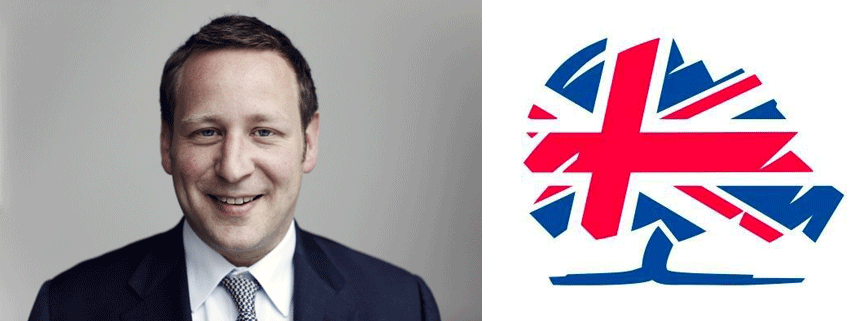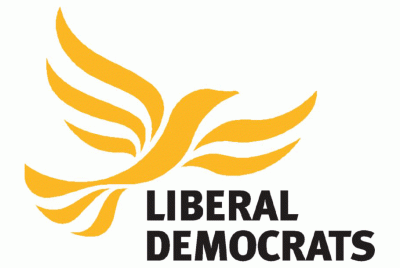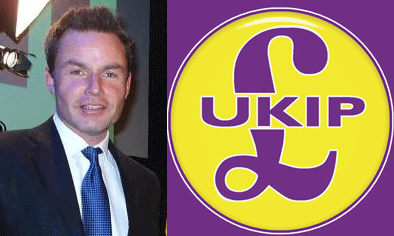How should you vote? What political parties are promising designers
The UK’s next General Election will be held on 7 May and the political parties are already putting together their manifestos and outlining their key policies.
BESbswyBESbswyBESbswyBESbswyBESbswyBESbswyBESbswyBESbswyBESbswyBESbswyBESbswyBESbswy
We spoke to five major parties – the Conservatives, Labour, the Liberal Democrats, the Green Party and the UK Independence Party – to find out what they would do for the design industry if they won at the next election.

“Design is one of our most accessible creative industries. It impacts on our daily lives in so many ways – from the transport we take, to the cutlery we use to the clothes we wear. The UK is a world leader in design. The Monocle Survey on soft power, which is about a nation’s power in terms of creative things and innovation, put Britain at number one.
Latest figures show the design sector has been one of the highest performing under this Conservative-led government. In 2013, 177,000 people in the creative economy were employed in design and designer fashion, up by almost a fifth from 2011. Even more impressively, this group had the largest percentage increase in employment in the creative industries in the same period.
It gets better.
The Gross Value Added (GVA) for the design sector was around £3.1bn in 2013, and observed the largest GVA increase (+28%) of all creative industry sectors from 2012-2013.
Government takes design seriously. In 2013 our single domain GOV.UK won the coveted Design Museum Design of the Year Award. The team behind this, the Government Digital Service, is estimated to make savings of £1.7bn a year by making all Government services digital by default. Building on this success, we’re increasing digital capability across government and hiring designers in many other departments, something a future Conservative government would seek to build upon.
On skills, we have announced £20m to match industry investment for creative industry skills, which will assist in the development of the designers of the future. The funding will come through the Employer Ownership of Skills pilot following a successful bid by creative industry employers led by Channel 4 and skills organisation Creative Skillset.
Our commitment to the design sector is clear. While these figures paint an encouraging picture, we cannot be complacent. We can only continue to have a robust design sector with a strong economy and a long-term economic plan – something only the Conservatives can offer at the next general election.”

“Labour recognises that the design industry is a huge contributor to the UK economy, employing around 350,000 people and with UK businesses investing up to £35 billion a year.
We are committed to supporting innovation and our knowledge economy, including the design industry, to help create more of the high-skilled, better-paid jobs that the UK needs. This is a fundamental part of our plan to boost living standards and deliver sustainable, balanced growth.
Working to ensure our Intellectual Property regime is fit for purpose is an important part of safeguarding our comparative advantage in this area and ensuring the industry has the certainty and stability it needs to thrive. That’s why we have been keen to champion the rights of smaller designers to ensure they are properly protected.
Labour’s approach will be to have an active government working to support the success of the UK’s key industries and sectors – including the creative industries and design – in order to encourage long-term investment and deliver future success.

“Britain has been at the forefront of global design for decades, with companies like Dyson and figures like Sir Jonathan Ive still pushing boundaries today. The Liberal Democrats think it’s essential that existing design companies have the tools to fulfil their potential but crucially that the next generation of emerging designers are supported and encouraged.
Only the Liberal Democrats have pledged to protect education funding from early years to college. This means that schools and colleges can continue to deliver the curriculum in full covering the multitude of subjects which feed into the design industry.
Apprenticeships are a fantastic way of giving young people a foot in the door of the design industry and it’s thanks to the Liberal Democrats in government that availability of them is increasing. 2 million new apprenticeships have been created since 2010; over 22,000 of those have been in engineering or the arts.
The Liberal Democrats are helping design businesses across the country through our £3.5bn Regional Growth Fund. It has helped hundreds of associations and schemes throughout the country, including Creative England’s ‘creative industries growth programme’ which grows and supports creative industries. Alongside this we are extending funding for our Catapult Centres which forge links with researchers, designers and entrepreneurs to ensure that innovation which is developed in the UK stays in the UK.
The Liberal Democrats will back the design industry and make sure the next generation of designers can keep Britain at the forefront of global design.”

“The Green Party is the party of local communities and public services. We would help the Design Industry by helping the whole economy, moving away the policies of Austerity which has created increasing inequality, and investing in local services, and small businesses.
The Green party would stimulate the economy for everyone by creating decent secure jobs on a living wage, investing hugely in renewable energy and energy efficiency programmes. We would provide equality and and security in a mixed economy by committing to the common good, a larger public sector and higher taxation reversing the cuts to health, education and local services and creating hundreds of thousands of jobs.
The Green party would help young people develop the skills to be able to take up a career in the creative industries. Specifically we would establish dedicated spaces for young people to meet and be creative. These would not just be for creative activities but would also offer access to information and specialist support for teenagers in difficulty. We would also establish more room for creativity in schools – we would introduce a broad, balanced and enriching curriculum in schools, creative and vocational areas.”

“Public awareness of the importance of good design has grown enormously in Britain in recent years, and our design industry is hugely – and rightly – respected throughout the world.
We in UKIP fully recognise and celebrate the importance of the design industry, both in creative and commercial terms, and believe that it should be as free as possible to trade globally without the stifling and restrictive regulation which results from Britain’s membership of the EU.
BESbswyBESbswyBESbswyBESbswyBESbswyBESbswyBESbswyBESbswyBESbswyBESbswyBESbswyBESbswy
A great many of the companies which make up our creative industries are in fact small businesses, and UKIP sees these as the very backbone of our economy. They are also the companies which suffer the most from EU interference. We want to remove these unnecessary barriers, and look outwards to the trading world.”





The Conservative statement carries some weight, but the others appear to be just glib statements to appease to question posed to them. None of them have mentioned the development of Design Teaching in schools and colleges which is worrying, because from what I have experienced the current teachings aren’t great, they concentrate too much on using the hardware and software and not enough on nurturing ideas and genuine creativity. There also needs to be more help in the form of grants for new start ups or designers going freelance. There is no grant funding at present, only match-funding… which not everyone can afford to match.
I agree, especially the nurturing of ideas and creativity, the software is just a tool, it doesn’t make you a creative designer.
Totally Agree with nurturing ideas and creativity. For example, at my university, a class of 30+ that started were all individual and had their own creativeness or unique style of working. Instead of nurturing the person individually, people were marked down for being a bit different or not displaying material in sketch books correctly. This left the course with 8 students in total that finished. I had a unique way of working as did others in my class, but this was considered incorrect by the tutors.
I’m currently a full time employed Graphic designer working for a marketing company, producing work for big IT clients. I’ve taught myself html/css coding (something that wasn’t even mentioned at university) and when I graduated I had no help in finding a job, it was down to me through word of mouth and hard graft to get noticed in the industry. I worked with no pay for ages having to build up some kind of experience/portfolio.
This step from university to the industry needs to be improved and the students coming out of university need to be prepared for this step as its not all plain sailing.
if you look at the UKIP logo you can see the importance they place on the design industry. If they came to power they would be too bizzy dealing with flying pigs to have much effect on the industry.
I agree with you on this, you can tell the importance they place on design but simply looking at the design that is produced by/for them.